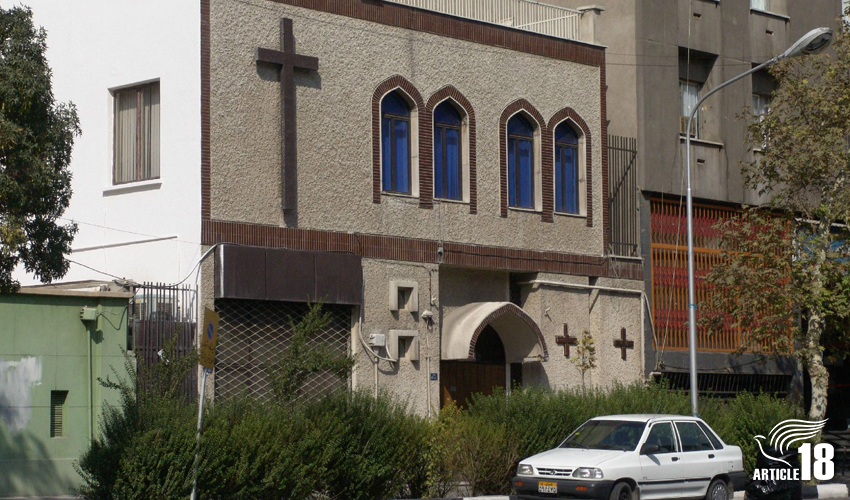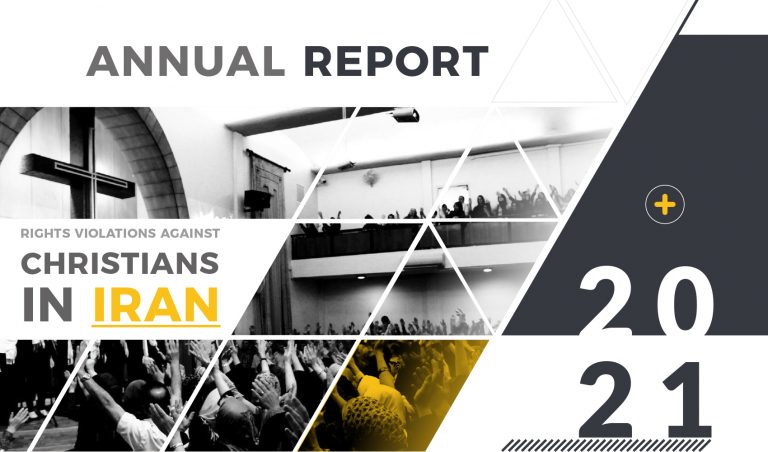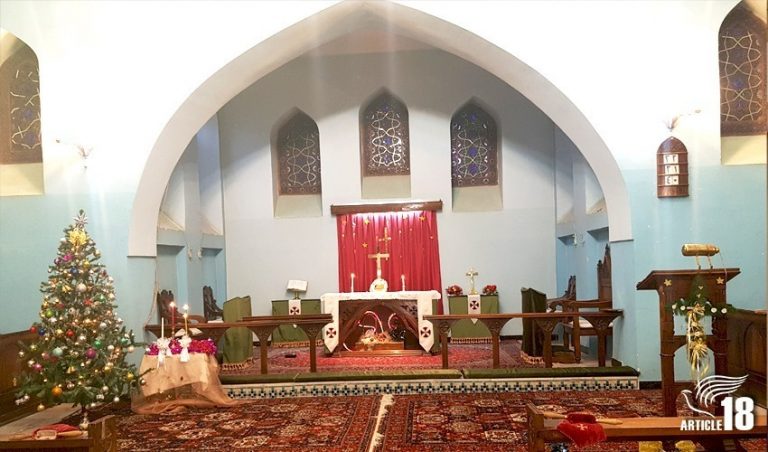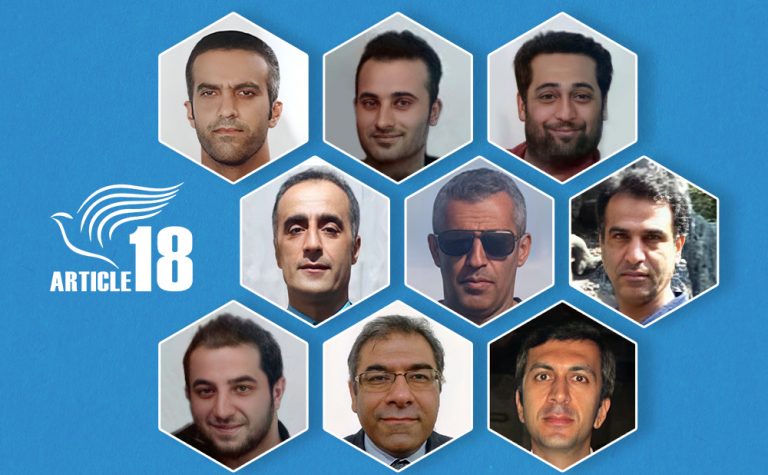This article was first published in 1993 by News Network International and is republished here with kind permission.

The Central Assemblies of God Church in Tehran, which was forcibly closed 20 years after this article was first published.
Several Iranian Protestant churches flatly refused to comply with government ultimatums issued in June [1993], requiring churches to limit evangelistic activities. The move is believed to be part of an apparent crackdown on churches attended by Iranians of Muslim background.
Even though Iran was rebuked by the United Nations Human Rights Commission in Geneva last March as a major violator of religious freedoms, the government has since required all of Iran’s Christian Churches to sign a statement declaring they will not evangelise Muslims.
According to reliable sources, leaders of the Assyrian, Armenian Orthodox and Presbyterian Churches have all signed the statement. However, the Assemblies of God and Brethren Churches have refused.
The latest standoff began in mid-June, when the Iranian Ministry of Islamic Guidance summoned two leaders of the Assemblies of God Central Church in downtown Tehran. Officials reportedly ordered the church to cancel its Friday worship meetings and stipulated that worshippers attending the Sunday church services would be required to share their identity cards at the door.
Despite strong threats of “consequences” for disobeying the ultimatum, church leaders refused to comply.
Church services on Friday, a day off in Iran, are heavily attended by both members of Christian minority groups and converts from Islam. Requiring ID-card checks would automatically expose everyone of Muslim background to police scrutiny.
“You can arrest us, put us in prison, execute us,” the church leaders said they told the authorities, “but we will not close down our churches.” According to a source inside Iran, the two leaders “politely but firmly stood up to this oral order”, which the authorities refused to put in writing.
The pastors said they reminded the Ministry of Islamic Guidance authorities that the government had promised that all Christian Churches would be guaranteed the right to preach and teach within their churches.
The following Friday, five plainclothes policemen appeared at the church an hour before services were scheduled to begin. They blocked the main entrance and demanded to see identity cards as worshippers began arriving.
The pastor said he intervened and invited the policemen into his office. At that point, they demanded that the pastor send his congregation home and cancel the service. The pastor refused.
The officers then asked him to sign a statement indicating his refusal, after which the pastor returned to the sanctuary and began the service.
The following week, the pastor said he attempted to file a protest with the Interior Ministry, but officials denied any knowledge of the incident. They declared the officers had not acted on orders and promised to “fully protect” the church.
In a separate incident on 25 June, the Assemblies of God’s Isfahan congregation was gathered for worship in a private garden when police scaled the walls and surrounded the group. Police demanded to see the identity cards of all worshippers. They later told the pastor he was “very fortunate” that no Muslim converts to Christianity were present.
The pastor was later questioned by police, who attempted to pressure him into signing a statement affirming he would not allow Muslims to enter his church. The pastor said he politely “declined”, insisting that no Iranian could be so impolite as to turn away a visitor.
Two days later, the Isfahan church was surrounded by Islamic guards on motorcycles, who prohibited any converts or inquirers of Muslim background from entering the church. Since the incident occurred, Muslim converts who regularly attended services have not been present.
“Before, the government just stressed that we must contain our activities inside the church,” one Christian leader told NNI. “But now they are telling us to stop our meetings. We can never agree to that because, if we do, within a very short time they will try to close down our churches entirely.”
In recent weeks, the leaders of small house-churches in Mashhad have also received threatening telephone calls, warning them to discontinue meetings. Instead, church leaders say they have simply varied the times and places of their meetings in order to evade detection.
Although church workers in Iran report that they are growing accustomed to telephone surveillance and frequent phone threats against their Christian activities, in the last few months they have noticed an unpleasant variation: the latest anonymous calls threaten to kidnap the children of active pastors and lay workers.
In June, an attempt to kidnap a Christian worker’s young son was foiled when the boy managed to run away from some men in a car who said they had come to “take him to his daddy”.
Pastors and Christian workers now say they are accompanying their children to and from school, as a security measure.



0 Comments